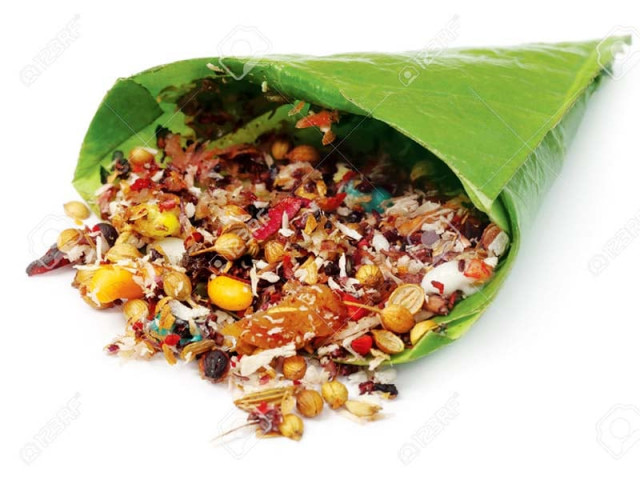The link between ‘paan’ and oral health
Businessmen are taking concept food to a whole new level by opening café-style ventures to serve gourmet paans only


But amidst all this hype, one ought to wonder why we are promoting the sale of something that doesn’t just cause small allergies but could also lead to oral cancer. Don’t believe us? Hear it out. There is a reason why Amitabh Bachchan’s band aqal ka taala came undone with just one Banaras paan.
Also known as betel quid – paan is an item banned in most developed countries and for the right reasons too. It is wrapped in a piper betel leaf with chunaa (slaked lime), kathaa (catechu), chaalia (slivers of areca nut) and often tobacco. These are usually the constituents of a regular paan available at most khokhaas, which are then topped with artificially coloured coconut to make sure the final product looks less of an eyesore. But the NHS has deemed this otherwise harmless looking thing a psychoactive stimulant, directly linked to mouth and esophageal cancer.
Here are the facts:

- If you’re about to stop reading because you steer clear of tambaaku wala paan, here’s a little something for you. According to UK’s National Health Services (NHS), betel nut alone can contribute to the risk of oral cancers so a paan with or without tobacco is still harmful.
- Consuming paan during pregnancy can lead to low birth weight, premature deliveries and reduced birth length.
- The very first paan recipe was formulated in the Indian subcontinent thousands of years ago. It is now popular mostly in south-eastern parts of the world, including Pakistan, India, Bangladesh, Thailand, Myanmar and Vietnam.
- The American Dental Association has enlisted paan as one of the leading risk factors of Oro-pharyngeal Squamous Cell Carcinoma or in other worlds, throat and mouth cancer.
- The Mouth Cancer Foundation and The International Agency for Research on Cancer (IARC) have classified paan as a known human carcinogen. Chewing on paan masalas and similar ‘mouth fresheners’ is also harmful.

It doesn’t matter if you’re in the habit or simply sample a paan or two once in a blue moon – you’re exposing yourself to the risk of developing a deadly malignancy.
Published in The Express Tribune, July 17th, 2016.
Like Life & Style on Facebook, follow @ETLifeandStyle on Twitter for the latest in fashion, gossip and entertainment.



















COMMENTS
Comments are moderated and generally will be posted if they are on-topic and not abusive.
For more information, please see our Comments FAQ